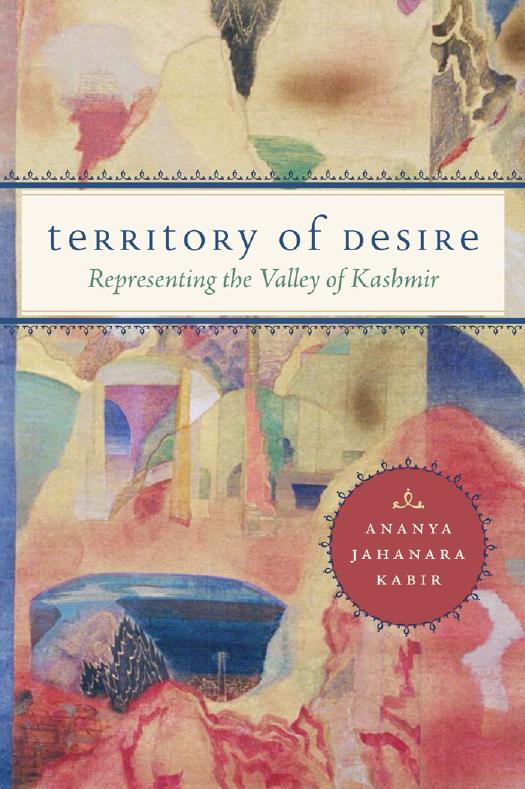Territory of Desire: Representing the Valley of Kashmir by Ananya Jahanara Kabir

Author:Ananya Jahanara Kabir [Ananya Jahanara Kabir]
Language: eng
Format: epub, pdf
Published: 2012-01-31T22:48:00+00:00
My Poem, My Mother (Tongue)
"0 my Koshur mother, I swear, you are my vision and you are my cognition"Thus declares Rahman Rahi in his emotionally taut, densely allusive poem, "Jalwa to zubur" (The Epiphany of David). Written in Koshur in 1965, and recently re-anthologized, it is a passionate declaration of love and need for the mother tongue.10 The poem opens out, accordion-like, an affective history of Koshur and the Koshur speaker. Lal Ded, the poets Rasool Mir and Mahmood Gami, even Sheikh Abdullah, are all evoked to consolidate a "thesaurization" of Koshur: the poem offers an inventory of the language's treasures." Rahi's assertions of personal voice seal within it the entire Koshur-speaking community. From infancy onward, it is the Koshur of his mother's lullabies and spinning songs that structures the poet's expressive self. "Had we not met, I would have suffocated; I could not have constructed any icons; the Moses in me would not have spoken to God" Language empowers the poet with sacral and rapturous epiphanies. And yet, he pleads with the language-as-mother: "Don't slip away-if you do, deserts will be my destiny/storms will have denuded the blooming lotus/words will be orphaned" Rahi, nationally felicitated poet, studied and sung within Kashmir and, on the evidence of this poem alone, fully in command of the language as expressive medium-what precipitates his fear of abandonment by the mother/tongue? Why does language's affective power over its speaker need the metaphor of the mother as capricious beloved? Why is it, to cite another Kashmiri poet, writing a generation later, in English, and also of his mother, that "the loved one always
Agha Shahid Ali's final volume of poems, Rooms Are Never Finished, to which this latter statement belongs, helps us excavate the problematic linguistic terrain that subtends his poetry of loss as much as Rahi's poem of attempted self-empowerment. While Ali's earlier collection, The Country without a Post Once, centered on the devastation of the 1990s, Rooms Are Never Finished arose out of his mother's death, after prolonged illness, in a Massachusetts hospital. A prefatory statement nevertheless links the two motivations. "To a home at war, my father, sibling and I brought my mother's body for burial. It was the only thing to do, as she had longed for home throughout her illness" The "ongoing catastrophe," the "focus" of The Country without a Post Office, is reiterated as the present volume's The opening poem, "Lenox Hill," enacts these continuities. It draws on the legendary cruelty of the Hun Mihiragula, medieval invader of Kashmir, who took arbitrary delight in hearing the extraordinary cries of elephants driven to their death over the Pir Panjal Range. American windows open on to the blizzard-fall of elephants and fragile wood shrines, Mihiragula's oppression merges with the "punishing khaki" of the Indian army, and sirens segue into elephant cries. "The Hun so loved the cry, one falling elephant's, that he wished to hear it again" Echoing across the centuries, splicing together time and space and entering, via Manhattan's car sirens,
Download
Territory of Desire: Representing the Valley of Kashmir by Ananya Jahanara Kabir.pdf
This site does not store any files on its server. We only index and link to content provided by other sites. Please contact the content providers to delete copyright contents if any and email us, we'll remove relevant links or contents immediately.
| African | Asian |
| Australian & Oceanian | Canadian |
| Caribbean & Latin American | European |
| Jewish | Middle Eastern |
| Russian | United States |
4 3 2 1: A Novel by Paul Auster(11047)
The handmaid's tale by Margaret Atwood(6852)
Giovanni's Room by James Baldwin(5877)
Big Magic: Creative Living Beyond Fear by Elizabeth Gilbert(4723)
Asking the Right Questions: A Guide to Critical Thinking by M. Neil Browne & Stuart M. Keeley(4574)
On Writing A Memoir of the Craft by Stephen King(4213)
Ego Is the Enemy by Ryan Holiday(3991)
Ken Follett - World without end by Ken Follett(3972)
The Body: A Guide for Occupants by Bill Bryson(3800)
Bluets by Maggie Nelson(3709)
Adulting by Kelly Williams Brown(3669)
Guilty Pleasures by Laurell K Hamilton(3586)
Eat That Frog! by Brian Tracy(3514)
White Noise - A Novel by Don DeLillo(3434)
The Poetry of Pablo Neruda by Pablo Neruda(3366)
Alive: The Story of the Andes Survivors by Piers Paul Read(3310)
The Bookshop by Penelope Fitzgerald(3225)
The Book of Joy by Dalai Lama(3217)
Fingerprints of the Gods by Graham Hancock(3212)
